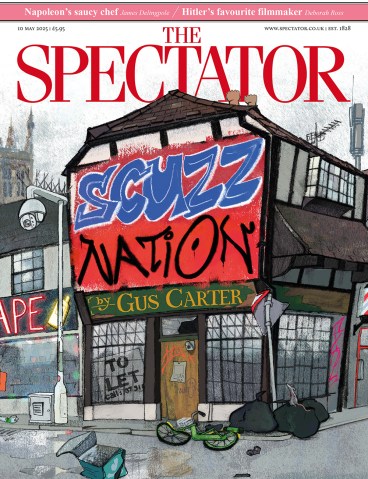
A hangar full of analysts and investment bankers must have spent the long weekend formulating advice for Shell chief executive Wael Sawan for and against a takeover of BP. On the plus side, Shell’s strong share performance, reflecting its undiluted focus on oil and gas and boosting its market value to £150 billion, makes a bid look almost bite-sized – BP’s value having shrunk to £56 billion over the past two years as investors decried the commitment to renewables that its board has belatedly reversed. And the addition of BP’s assets in North America and the Gulf of Mexico would turn Shell into a carbon-fuel giant to challenge the likes of Exxon and Chevron in the US.
But the ‘execution risks’ – including the crunching together of two vast management hierarchies – would be formidable. BP itself arguably offers a cautionary tale from the John Browne era a generation ago, with its aftermath of safety issues and internal strife, of the hubris of excessive ambition. And by the time Shell-BP is fully bedded down, several years hence, fickle investment fashion may well have swung back to wind and solar.
Does that mean Sawan is right to stick to Shell’s policy of buying back tranches of its own shares (as it has done steadily since 2022) as a safer method of ‘value-hunting’ on behalf of shareholders and share-rewarded executives? I say no: this column has been a consistent critic of buybacks that divert capital from operational and technological advance, ‘as a peril of the age: a contributing factor in the slump of productivity, the slowdown of growth… and the spread of cynicism towards big-corporate capitalism’. If cool-headed analysis tells Sawan that BP is a once-in-a-generation opportunity, he should grasp his destiny and go for it.
The joy of innovators
I’m beyond excited – as the kids say on what I believe they call their socials – that The Spectator Economic Innovator of the Year Awards 2025 are now open for entries at www.spectator.co.uk/innovator, with a closing date of 11 July. Since we launched this competition in 2018 to salute entrepreneur-led high-growth ventures in every corner of the UK, I’ve had the enjoyable challenge of assessing more than 1,100 entry forms and the pleasure of lunching with some 200 regional finalists. And we’ve all lived through the disruptions of Brexit, lockdown, Kwasi Kwarteng, Rachel Reeves and the return of Donald Trump.
But what has most impressed me about so many of the founders and business-builders I’ve met is the intensity of their commitment to the perfection of the product and the conquest of the marketplace, regardless of political risks and follies that impinge. I’m constantly reminded of a remark earlier this year by Will Butler-Adams, boss of that great British innovator Brompton Bicycle: ‘I don’t need the government to back me, I just don’t need them to kill me.’
Cyber mystique
At least the in-person Papal Conclave isn’t at the mercy of Microsoft Teams. And with their mobiles switched off, the cardinals’ online betting accounts should be safe from the Scattered Spider hacker group that has caused havoc at Marks & Spencer and the Co-op, having first come to notoriety for its ransomware attacks on Las Vegas casinos. Let’s hope too that the payroll software of the Istituto per le Opere di Religione, better known as the Vatican Bank, is properly robust, so their eminences are not caught short of readies when they go out on the town after the release of white smoke.
Hacks such as the one which crippled M&S last week are sophisticated criminal acts that we’re told are extremely hard to guard against. But breakdowns of bank systems that leave wages unpaid, often without explanation or apology, need calling out as sheer incompetence – and appear to be far more common. The Treasury select committee recently heard evidence of at least 158 such outages in major UK banks and building societies over the two years to February. Briefly to be unable to shop online may be a bit of a bore but, as the committee chair Dame Meg Hillier commented: ‘For families and individuals living from paycheque to paycheque, losing access to banking services on payday can be a terrifying experience.’ Beware of banks using the mystique of cyber crime as a smokescreen for in-house IT cock-ups.
Meanwhile I propose we bar Scattered Spider as a potential Innovator entry from Scotland, even though it clearly has global growth potential and its alleged erstwhile leader Tyler Buchanan was until recently operating in classic start-up mode from his mum’s house in Dundee. But having been collared by the FBI, he’s now awaiting trial in California on multiple fraud charges – and unlikely to be free for our gala Awards dinner in November.
Pothole politics
‘Pothole golf’ was a campaign stunt that gave Nigel Farage an opportunity to castigate local authorities – of which his Reform party won control of ten – for wasting money on wokery while their roads are left dangerously unrepaired. As it happens, one such hazard in a Kensington side street caused me to fall full-length (sober, I hasten to add) on the eve of polling. But as my companions hauled me upright, knees bruised and specs broken but nothing worse, I did not immediately think: ‘I’ll sue the pants off the Royal Borough’ or ‘I’d vote Farage for prime minister tomorrow’. Actually, what I thought was: ‘Where’s MacRebur when you need them?’
Who’s MacRebur? A real Innovator from Scotland, founded in Lockerbie in 2016 to manufacture low-carbon road-surfacing materials, first developed as pothole filler, from recycled plastic waste. It has grown to export to 30 countries and is one of my all-time favourite regional winners: a perfect illustration of the idea that whatever damage politicians do, creative entrepreneurs can make the world a safer place.








Comments